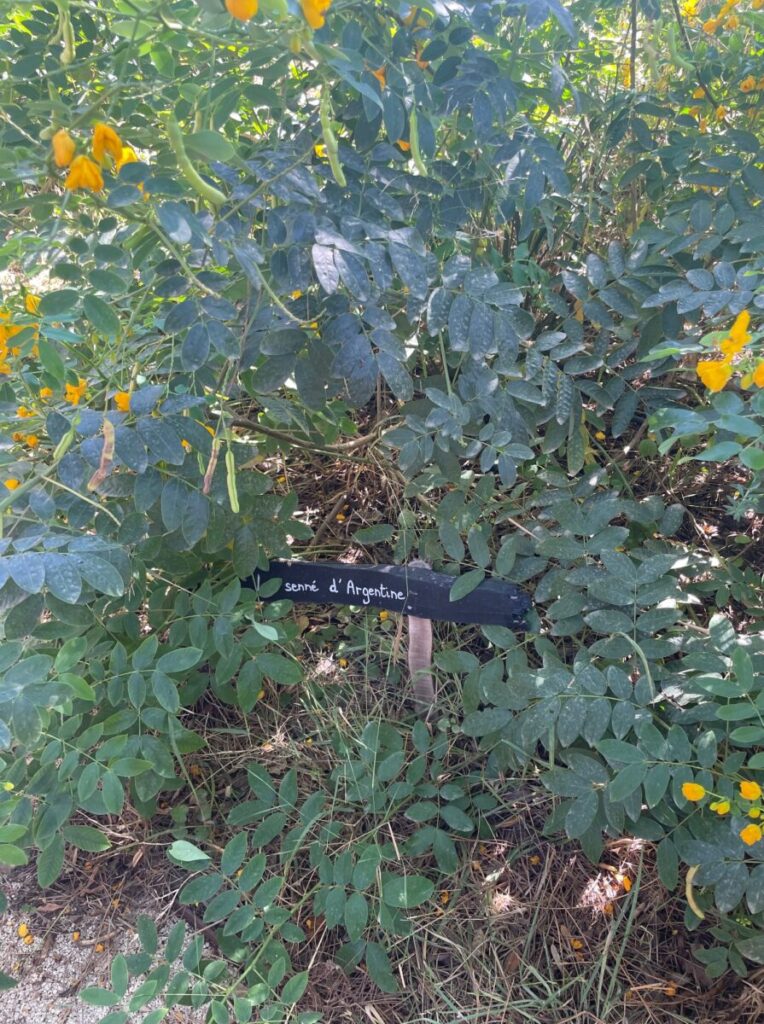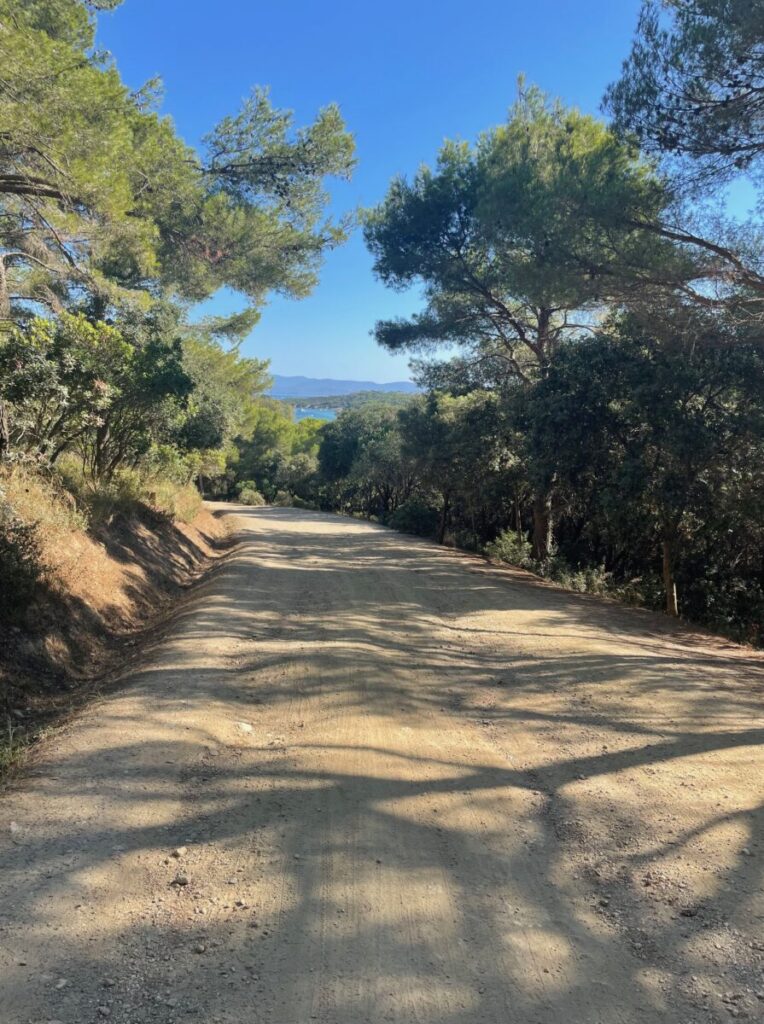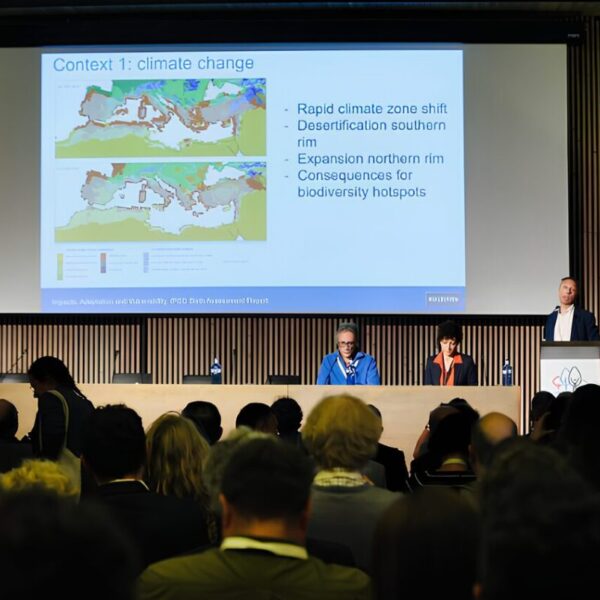From November 4 to 7, the 8th Mediterranean Forest Week (8MFW) took place in Barcelona. This biennial event brought together experts, government officials, and community leaders to develop a common approach to the challenges facing Mediterranean forests. Solutions and initiatives were discussed to conserve and restore Mediterranean forest ecosystems. They rely on international cooperation capable of enhancing their resilience and sustainability.
Magda Bou Dager Kharrat, a National Geographic explorer and senior scientist at the EFI (European Forest Institute), participated in these meetings. She emphasizes that initiatives like this can significantly accelerate the process. “By allowing scientists and professionals to share best practices, lessons learned, and proven methodologies. By avoiding redundant efforts. And by saving time and resources.” She also highlights the importance of international alliances: “proactive environmental strategies are essential to avoid irreversible damage.”

With thousands of years of human management, Mediterranean forests reflect a complex balance between nature and human intervention. Today, they face droughts, water shortages, and wildfires. Addressing these challenges requires combining science, traditional knowledge, and cross-border cooperation.
Nevertheless, differentiated cooperation is necessary to optimize natural resources according to the context of each sub-region. The Lebanese Jean Stephan, an environmental consultant and speaker at the forum, explains that there are similarities, but also differences, between the northern and southern Mediterranean basin countries. In the north, many resources have been forgotten due to rural exodus. “Pastures, agricultural lands, and even forests, including some non-timber forest products, are underutilized. This allows for biomass accumulation, forest expansion, but also leads to fires and pest infestations.” Meanwhile, in the south, “poverty prevails among the still-present rural population, and dependence on natural resources remains significant,” he states. Consequently, these resources are overexploited to meet these needs.

Resilience and Diversity of the Forest Ecosystem
It is important to strengthen the long-term resilience of the ecosystem. For Magda Bou Dagher, "sustainable forest management is essential to restore balance within the agrosilvopastoral system. A traditional approach that integrates agriculture, forestry, and pastoralism to maintain a balanced landscape. This approach not only promotes forest regeneration and controls biomass but also supports ecosystem health in the face of climate challenges.” “Ecological corridors that connect forest areas” are also essential for species migration and adaptation.
For his part, Jean Stephan argues that monoculture forests are vulnerable, while diverse forest ecosystems are more resilient. “Diversification should be encouraged. This means that no species should be dominant; ideally, it should not contain more than 70% of the number of trees in the forest. Endemic, rare, threatened species, and those that diversify landowners' incomes should be taken into account. Additionally, small shrubs and open spaces with flowering plants are also important, and therefore the understory should be managed and preserved.” An understory to be preserved particularly in areas away from roads, where fires can break out and are more difficult to control.
Genetics, Essential
However, in the face of extreme events such as wildfires or severe flooding, genetic diversity alone cannot prevent immediate destruction. Indeed, even the most resilient species are vulnerable.
On the other hand, “genetics continues to play an essential role in the recovery and long-term adaptation of Mediterranean forests. Through rigorous species selection, we can improve resilience to certain conditions. For example, choosing less flammable species or those with deep root systems can reduce fire risks and improve soil stability,” explains Magda Bou Dagher.
Even though disasters cannot be avoided, this proactive approach helps forests withstand them and recover over time.
Currently, several restoration projects have been successfully implemented. Jean Stephan highlights the Land Degradation Neutrality project implemented by the UNDP through local NGOs. It aims to replace the planting of a single tree species (cedar or pine) with a set of more diverse species, including rare and threatened species, and shrubs in areas where the soil is shallow. The SALMA project by the FAO has also improved the capacity of local leaders to develop forest management plans, protecting endemic and rare species.

Financial Instruments and Urgent Regional Policies
International policies for the protection and restoration of forests are in place, but their implementation at the national level is urgent. It requires stronger integration into local policies, as Magda Bou emphasizes. “These international frameworks provide a foundation, but their real impact will depend on how they are adapted to specific national contexts and strengthened by robust political mechanisms.”
Many projects and initiatives are already showing significant progress, such as the launch of the Mediterranean Forest Initiative (MFI) during the MFW and the Mediterranean Forest Genetics (MEDFORGEN for Lebanon, Morocco, Tunisia, Palestine, Israel, and Algeria) project led by the European Forest Institute. These initiatives are essential not only for restoring forests but also for improving biodiversity, climate resilience, and local community participation.
However, there is still room for improvement. Jean Stephan emphasizes the need to “revise the legislative framework,” particularly in the south and east of the Mediterranean, regarding forest management and biodiversity conservation, linking it to a broader approach that includes regulations on agricultural practices and strategic planning.
Both experts are optimistic about the future. For Jean Stephan, “we will witness a return to nature-based solutions and a diversification of goods and services in managed forests.” For her part, Magda Bou Dagher “hopes that substantial progress in the restoration and protection of Mediterranean forests will be made over the next 5 to 10 years.” Both emphasize the need for ongoing commitment from all parties involved.

Featured Photo: Solutions and initiatives were discussed to conserve and restore Mediterranean forest ecosystems during the 8th Mediterranean Forest Week
